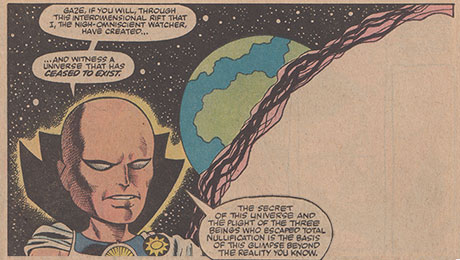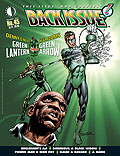Martinex1: Is a band's work considered more favorably if the group breaks up or if they stay together for a significant amount of time?
Thursday, June 2, 2016
A Simple Question Regarding Longevity of Bands
Labels:
Beatles,
Boston,
Led Zeppelin,
Rolling Stones,
The Who,
U2
Subscribe to:
Post Comments (Atom)

























































13 comments:
I would venture that a breakup tends to give a boost to the ratings of a group. Take the big two examples, Beatles and Rolling Stones. The Beatles were active together for approximately a decade, mainly in the public eye for about 7 years. Their breakup occurred while they were still a pretty creative force, and history has overall been kind.
The Stones, on the other hand, are the 'Energizer Bunnies' of rock: they just keep going, and going...
This very longevity leaves them vulnerable to the inevitable discussions of decline and stagnation (deserved or not). And it is only to be expected; it's pretty challenging to keep the edge over 5 decades for anyone. Had Lennon and McCartney stayed together for such a time, I suspect their later output would receive much less praise than the earlier work.
Yes.
The Rolling Stones haven't been relevant for 20 years, their recent releases aren't anywhere near the same caliber as their classic material. Same goes for Dylan. But they both keep touring and recording.
If the Beatles hung around into the 70s, they would have eventually released inferior material, which would have damaged their "mystique."
I've long had a belief that most bands start to decline after 5 years in the public eye. Among my friends, we call this "The Five Year Rule." There are exceptions, but I've found most bands or "solo" artists aren't great for very long. But if a band is great for one of two albums, then starts to decline, that shouldn't detract from their early great music.
An interesting question. My short answer is also "Yes".
I remember reading a Pete Townshend interview in the early '80s. In the wake of Lennon's death and Lennon carrying to his grave that the Beatles would never reunite, Pete, Roger Daltrey and (especially) John Entwistle came to the realization that The Who, as an entity, was their meal ticket. So, like so many things, the almighty dollar is what has kept groups like the Who, the Stones, etc. going in some incarnation or another all these years.
I think Lennon being shot affected my personal opinion of these long-lasting bands and also of reunions. I remember going to see the Stones in 1978 and thinking "Wow, these guys are really old. They should hang it up. (geez they were in their late 30s for cryin' out loud)." Then Lennon was killed and it began to sink in that we really were never going to see the Fab Four together again - ever. So when Simon and Garfunkel had their reunion in Central Park in 1981 I thought "Wow, it sure is neat seeing these two back together again".
Tom
I saw the Stones in the 90s and I was shocked at how good that show was. They played much of their 60s and 70s catalog though. It was a much better live show than The Who of the same era. Are the Beatles overrated because they broke in their prime or are they that good? I know that they are great but also feel absence makes the heart grow fonder.
If a band stays together forever like the Stones, The Who, and U2, they become something us old people can cling to as a source of nostalgic comfort. "It's nice to know these guys are still cranking out the tunes. Ah, it reminds me of the good old days."
On the other hand, if a band blazes for a few years like a comet and then burns out, like the Beatles, and Led Zeppelin, they then become Legends that us old people can look back on say "Man they just don't make 'em like that anymore."
I think the legendary bands achieve a higher status because people can use their imaginations to wonder "what if?" And we all know that reality isn't usually as good as what we can dream up in our heads.
I think when bands stick around for a long time, people tend to fixate on certain periods of their work, typically their early years, and consider everything that followed to be extraneous -in many ways, unnecessary and not worthy of that outstanding early work. And usually it is that stuff in the early to mid period of an artist or group's career that seems to be the very best of their work.
I know I used to say I wish the Stones had packed it in after Some Girls. I don't think they've done anything of any real artistic merit since that time. But I've come to realize that most of these musicians we're discussing truly love making music and performing, so what are they supposed to do? Change careers? Disappear? Just because we may not care for the music they are producing now, doesn't mean they should stop. They are people, not flies to be trapped forever in amber, preserved at the point when we enjoyed them. If I don't care for what they are doing, I just don't buy it.
I had a discussion with a friend last month about Robert Plant. He was annoyed that Plant would not agree to tour with Jimmy Page and John Paul Jones (and I think Zack Bonham) as Led Zeppelin. He felt that Plant should give the fans what they want. I said, why should he? If he doesn't want to play with those guys any more, if he wants to focus on new music, then that's what he should do. He doesn't owe anyone anything. I've actually enjoyed some of Plant's new work, and I saw him in concert in 2005, and he still did Zeppelin songs live. But he should do what makes him happy and fulfilled. I'm sure he could rake in the bucks with a Zeppelin tour, but he doesn't want to do it, and I think that's fine. I can always listen to my old Zeppelin tracks whenever I want.
I have noticed that most bands do their best work shortly before internal tensions break them up. It was true with (the original)Heart,The Smiths, Beatles, Labelle and many others (I read all the show biz memoirs). Hey Karen have you seen Heart's live version of Stairway to Heaven, with the members of Led Zep in the audience? It is FANTASTIC.
For me, the tenure of a band is subjectively tied to the quality of the body of work. For example, U2 has been around for over 30 years -- still quite active. Yet when I listened to the Songs of Innocence album that was released last year I felt that there really wasn't anything new about it. Have they been going too long then?
For a band to stay relevant there has to be an able blending of recognition and experimentation. We can all look back at the Beatles catalog, which evolved tremendously, and say "Yeah, that's a Beatles song." But how many of them "sound alike"? Take Led Zeppelin -- you know it's them, but do any of their songs sound like other songs? Both bands evolved, yet stayed true to who they were. So I guess when that evolution stops, that's probably when it's time to hang it up. And that's OK -- just become the Beach Boys and thrill fans with your 40-50 year old catalog. People eat that up.
Doug
It's better to burn out than to fade away........
I'm think I'm staying on point here, namely, Karen's mention of people fixating on certain periods. Take Fleetwood Mac, they've had so many lineup changes that it might be hard to say "What is Fleetwood Mac?". (Who?) Can you have Fleetwood Mac without Lindsey Buckingham or did he so define the band's high point that nothing else rings true?
Was it still the Eagles after Leadon left?
Was it still Journey after Steve Perry departed?
Styx post Dennis? REO & Kevin Cronin? The Commodores after Lionel left?
What's it all mean........????
Look Ma, no exclamation mark!!!! (Crap)
I'm a man without conviction
I'm a man who doesn't know
How to sell a contradiction
You come and go
You come and go
Karma Karma Karma Karma Karma Chameleon
You come and go
You come and go
Loving would be easy if your colors were like my dream
Red, gold and green
Red, gold and green).
Bob, I have seen Heart's tribute (with Jason Bonham, I had a brain fart and said Zack before), and it is just a joyous, beautiful effort. What's really terrific is seeing the reaction of Zeppelin -Page and Jones rocking out, and Plant moved to tears. If anyone's interested here's the link: https://www.youtube.com/watch?v=LFxOaDeJmXk
In the pop realm, it does seem to happen that artists have their golden era where the music, their energy and their personality all coalesce into a heady stew which makes their output seem especially good and relevant. This period will then at some point wear off.
But... there is also the fact that for diehard fans of an artist, having a greater output to choose from is a boon. For instance, I greatly enjoyed the last AC/DC album (Rock or Bust), and even though - for me - nothing can rival a certain era (or verily, lineup), there is still an identifiable sound being produced, and I have heard the classics to death.
So for me, it is more pleasurable to listen to later material, as it hasn't reached overkill level. A similar example would be Alice Cooper. Nothing can touch the material released when it was the original group in the early 70's, but I have heard all of that material so many times, that it is more entertaining for me, at this stage, to listen to later albums.
So even though the latter output may not reach the olympic heights of the golden era, classic artists continuing to release music holds great value for me, nonetheless.
Tetrahedron
Late to this one, and first things first: Karen, thanks for the link to that Zep tribute. Holy crap, my eyes teared up watching and listening to that. I think that is now officially my favorite rendition of the song...
As to the question at hand, I'd say my answer in most cases would be true, but in the case of the oft-mentioned Rolling Stones, I'd say false. Even though most of their new material released in the past 20 years (heck, 30 years really - I tend to agree with Karen about "Some Girls" being their last great album) is not highly regarded, I don't really see that fact has diminished their status as rock legends, nor has it taken the shine (for most, anyway) off of their still acclaimed catalogue of songs from the 1960s and '70s.
By the way, Martinex, back in 1990 I saw - within a month of each other - the Who (on some kind of reunion tour) and the Stones (the Steel Wheels tour). Like you, I was astounded at how good the Stones concert was, while the Who did not impress me as much - in that case, it was very apparent that they were well past their performing prime.
Glad you liked it, Edo. Ann Wilson is a powerhouse singer. Heart used to be a Zepplin cover band before they got famous doing their own material. I recently read the Wilson sisters' memoirs and loved it. They are very honest which is rare these days.
Post a Comment